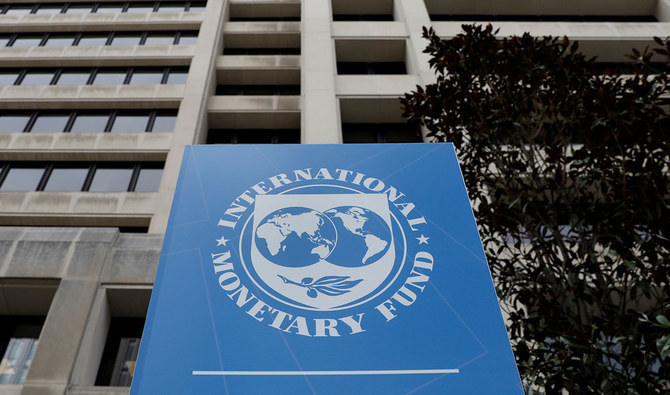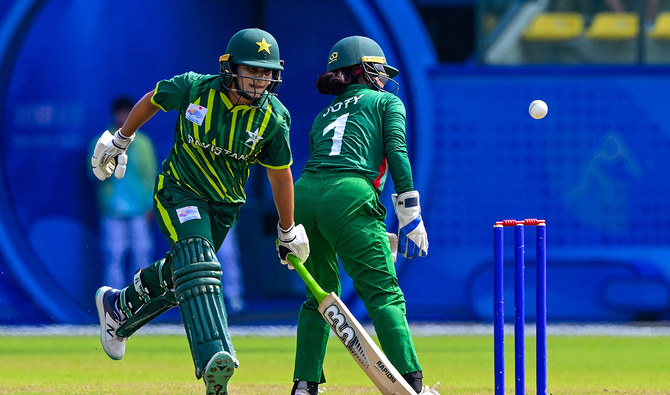KARACHI: Hopes that Pakistan may get stalled bailout funds from the International Monetary Fund (IMF) before the program expires at the end of June have been revived, experts said on Monday, after Pakistan announced last week it had changed its budget for the financial year starting on July 1.
Pakistan’s parliament on Sunday approved the government’s 2023-24 budget which was revised to meet IMF conditions in a last-ditch effort to secure the release of more bailout funds. A day earlier Finance Minister Ishaq Dar also introduced new taxes and expenditure cuts.
The IMF in mid-June expressed dissatisfaction with the country’s initial budget, saying it was a missed opportunity to broaden the tax base in a more progressive way.
With currency reserves barely enough to cover one month’s imports, Pakistan is facing an acute balance of payment crisis, which analysts fear could spiral into a debt default if the IMF funds do not come through.
There are four days to go before the $6.5 billion Extended Fund Facility (EFF) agreed in 2019 expires on June 30. The IMF has to review whether to release some of the $2.5 billion still pending to Pakistan before then. The tranche has been stalled since November.
“The revision of the budget has rekindled the hope that Pakistan’s case would come up in the agenda of the IMF executive board,” Dr. Vaqar Ahmed, Joint Executive Director at the Sustainable Development Policy Institute (SDPI), told Arab News on Monday.
“Now people like me are raising the question that if this [IMF bailout] comes up in the agenda, then what would be the ‘forward modality’ of the program, would the program get an extension or will Pakistan get permission to present the case for a new program.”
In the changed budget, Dar revised the revenue collection target to Rs9.415 trillion ($33 billion) and put total spending at Rs14.480 trillion ($51 billion), increasing the petroleum levy from Rs50 to Rs60 per liter.
To boost revenue generation, authorities took Rs215 billion ($752 million) additional tax measures, cut Rs85 billion expenditures, hiked allocations under the social safety Benazir Income Support Program (BISP) by Rs16 billion, and withdrew the amnesty on foreign exchange inflows.
Experts believe the targets set in the revised budget would be hard to achieve as a caretaker government will take over in less than two months before the country goes into a general election in October. The fiscal measures taken in the revised budget are also expected to have an inflationary impact.
“Budgetary adjustments were required,” Farhan Mahmood, Head of Research at Sherman Securities, told Arab News. “These measures would be inflationary as there are talks of imposing sales tax and excise tax on the fertilizers etcetera.”
On Friday, Pakistan’s central bank also removed restrictions imposed on imports, which according to analysts was a key sticking point in talks with the IMF.
“IMF wanted to withdraw the restriction imposed on imports,” Tahir Abbas, Director research at Arif Habib Limited- a brokerage firm, said, adding that lifting the ban would not make much difference due to the low foreign exchange reserves position of the country at $3.54 billion. Around 6,000 containers are currently stuck at the Karachi port, according to the maritime ministry.
Mahmood said the country would continue to give import priority to the oil, food and pharma sectors unless the IMF deal was revived and the country received an around $1.1 billion disbursement.
The country’s share market closed bullish on Monday on the hopes of the revival of the IMF program and the withdrawal of restrictions on imports, which is expected to support industrial activities.
The benchmark KSE100 index closed at 41,437 points after gaining 1,371 points on Monday, according to the Pakistan Stock Exchange data. The Pakistani rupee also closed a little higher in the interbank market, appreciating 0.01 percent to Rs286.71 against the United States dollar.




















